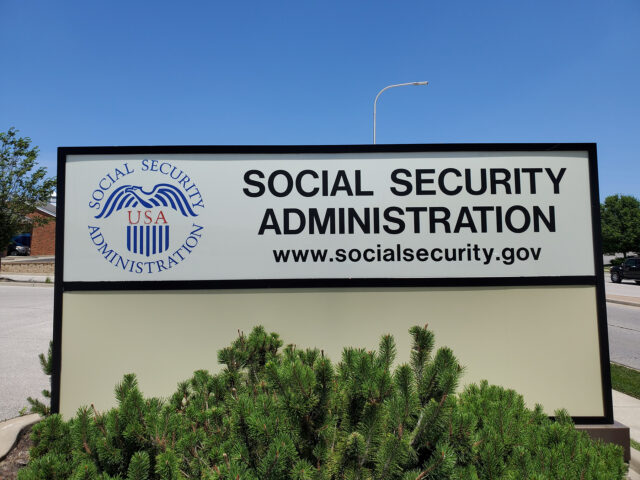Filter


State Wage Subsidy Gets Injured Employees Back to Work
Oregon is one of the few states that encourages employers to find ways to help employees who sustain on-the-job injuries make a quicker transition back to work. The state pays a generous subsidy to employers that accommodate their injuries or provide them with other tasks they can do until they recover. The subsidies, which are funded through a payroll tax, are equal to half of injured workers’ wages for up to 66 work days. The program is highly effective, a new study found. Workers in the firms that are frequent participants in the program are far more likely to be employed a year after their injuries, and they were earning more per quarter than the injured workers in firms that…
October 10, 2024
People with Disabilities Benefit from Rise of Remote Work
The surge in remote work sparked by the pandemic has opened up new job options to keep older Americans with disabilities employed until they’re ready to retire. Remote work has inherent advantages for them, including easier commutes, flexibility, and access to a wider range of jobs. Older workers took full advantage of this during the pandemic, when telework and hybrid work arrangements took off. From 2018 through 2022, the employment rate increased by 11.6 percent among people between ages 51 and 64 with disabilities due to an increase in employment in occupations that can accommodate telework, according to Siyan Liu and Laura Quinby at the Center for Retirement Research, which supports this blog. Contrast that to stagnant employment during that…
October 3, 2024
My Late-Life Transition and Plan to Delay Social Security
After more than four decades of working – as a rookie reporter in Chicago, then Dallas and Boston, and finally 13-plus years writing this blog at Boston College – I have decided to dramatically reduce my hours of work. I need more time for myself when I’m not taking care of my 88-year-old mother, who moved from Florida to an assisted living facility nearby. But I am not going cold turkey into retirement, and that is the point. I will continue this blog but will write less. The financial and emotional issues I wrestled with in reaching this decision are no different than what many of my baby boomer readers are dealing with as they think about whether and when…
September 26, 2024
Low-income Housing Improved but Residents Still Struggle
U.S. house prices and rents have been rising for decades, interrupted only by the Great Recession. Rising costs have increased the already considerable burden on low-income people to pay for housing. In 1985, for example, single people who received cash assistance from the federal Supplemental Security Income (SSI) program were paying half of their budgets for rent or a mortgage, according to a new study. Today, housing consumes about two-thirds of their income. The trend is also up, though less dramatically, for families in which one member is getting SSI, with housing expenses growing from 45 percent of the budget to more than half. The maximum monthly SSI benefit is $943 for individuals and $1,415 for couples, and many recipients…
September 24, 2024
Retirees Living in Someone Else’s Home See Big Savings
More than one in five older Americans is living with other adults – adult offspring, parents, grandchildren, extended family, friends – who are not their romantic partners. A new study examining the housing costs paid by retirees with these arrangements finds a big gulf in who is being helped. The older adults who are guests in someone else’s home spend about $730 a month less on utilities and rent or a mortgage than the hosts who invite others into their homes to live with them, according to the University of Kentucky and Georgetown researchers. The retired hosts, who are either homeowners or primary renters, are spending no less on housing and utilities than people who live alone or with a…
September 19, 2024
Older Americans Increasingly Vulnerable to Rising Rents
As the nation was emerging from the pandemic, rents exploded. Two years later, the pressure on rents is starting to ease in response to an increase in multifamily construction, including apartment buildings. But the COVID-era surge continues to haunt renters, who are paying about 20 percent more than they did in 2019, though healthy wage increases in recent years offset some of that. The nation is in the grips of “an unprecedented affordability crisis,” Harvard’s Joint Center for Housing Studies concludes in its new report. The center estimates that about half of U.S. renters – some 22 million households – spent at least 30 percent of their income on rental housing in 2022. That’s the highest share in over a…
September 17, 2024
COVID Disrupted Schools’ Role as Funnel for Federal Aid
The Supplemental Security Income program supports more than 1 million disabled children nationwide. Poor and low-income families receive monthly cash payments of up to $943 to help with their care. In most states, automatic Medicaid eligibility for the child is part of the SSI package. New research finds that the pandemic disrupted a natural channel for families to get information about this critical financial support: the schools. All but two states – rural Montana and Wyoming – immediately shut down the schools in the spring of 2020 to control the spread of the deadly virus. Applications to federal Supplemental Security Income, or SSI, plunged after parents lost that connection to information about the program. In early 2020, applications submitted on…
September 12, 2024
Temporary Rent Assistance Promotes Job Stability
Critics of temporary rental assistance argue that it gives people the financial leeway to work less. But that was not the case for low-income workers in Chicago. The workers, who received up to $1,000 to get them out of a jam, had more stable employment than the people who did not receive any help, according to University of Notre Dame research. The earnings of the lowest-income families who received the assistance even increased a little bit. Stable housing is crucial to remaining employed. When a family is unable to make a month’s rent, a downward spiral can result from a relocation or even homelessness that makes it difficult to keep their jobs. Rental assistance, by preventing calamity, stabilizes a family’s…
September 10, 2024
Add this to Your Retirement Expenses: Climate Change
Paul and Sandra McCrossan live on such high ground in Toronto that their neighborhood is a popular rest stop for migrating birds. But sodden ground affected their aerie when the city experienced its highest rainfall in recorded history in August. For the first time, their basement showed traces of moisture. And for Paul McCrossan, unusually heavy rainfall due to climate change was a risk to his home that he wasn’t willing to tolerate. The couple spent $10,000 coating the outside walls of their basement to protect them from water and making sure the drains in the widow wells were clear. “These were unanticipated but not unmanageable expenses,” McCrossan, who had a long career in insurance as a risk manager, said…
September 5, 2024
Severe COVID Cases Had Big Impact on Family Finances
Workers who contracted long COVID or suffered the most severe symptoms of the virus felt a big impact on their families’ finances from the resulting disruptions to their work, researchers at the University of South Carolina and Montana State University found. When the adults in families with children experienced long COVID or got so sick they were hospitalized, they were nearly twice as likely to report having financial difficulty in 2020 and 2021 in an analysis that compared them with parents who had mild symptoms or did not contract COVID. The workers with severe cases were also laid off or furloughed at higher rates. As a result, the families with severe COVID cases were nearly twice as likely to los…
September 3, 2024
To Fix Social Security, We Face Tough Choices
“Unless we act now,” President Jimmy Carter warned in 1977, Social Security’s retirement trust fund will run out of money in 1983. That statement triggered several reforms that put the program on a firmer footing. Social Security is once again nearing a critical point. The day of reckoning is expected to come in 2033 if nothing is done to repair its finances. Retirees’ benefits would have to be cut by 21 percent, according to the agency’s May report on the trust fund’s fiscal status. In this NewsHour video, Alicia Munnell, director of the Center for Retirement Research, which publishes this blog, says reform is long overdue and discusses options for repairing the program. The changes required aren’t complicated but w…
August 29, 2024
Medicaid Expansion Opened a New Door for Disabled Blacks, Hispanics
The Medicaid expansion in 41 states that began a decade ago has helped low-income workers in numerous ways. Millions have gained health insurance for the first time under the program, which saves lives, stabilizes family finances, and adds a second layer of insurance to poor retirees’ Medicare coverage. The expansion has also benefited the disabled, and particularly people of color, new research finds. This is an important finding for Blacks, Hispanics, and Native Americans, who have higher levels of disability and poverty, which federal disability benefits and cash payments under Supplemental Security Income (SSI) were designed to alleviate. Expanding Medicaid so that it covers more lower-income workers has had a dramatic impact on the SSI and disability programs – in…















